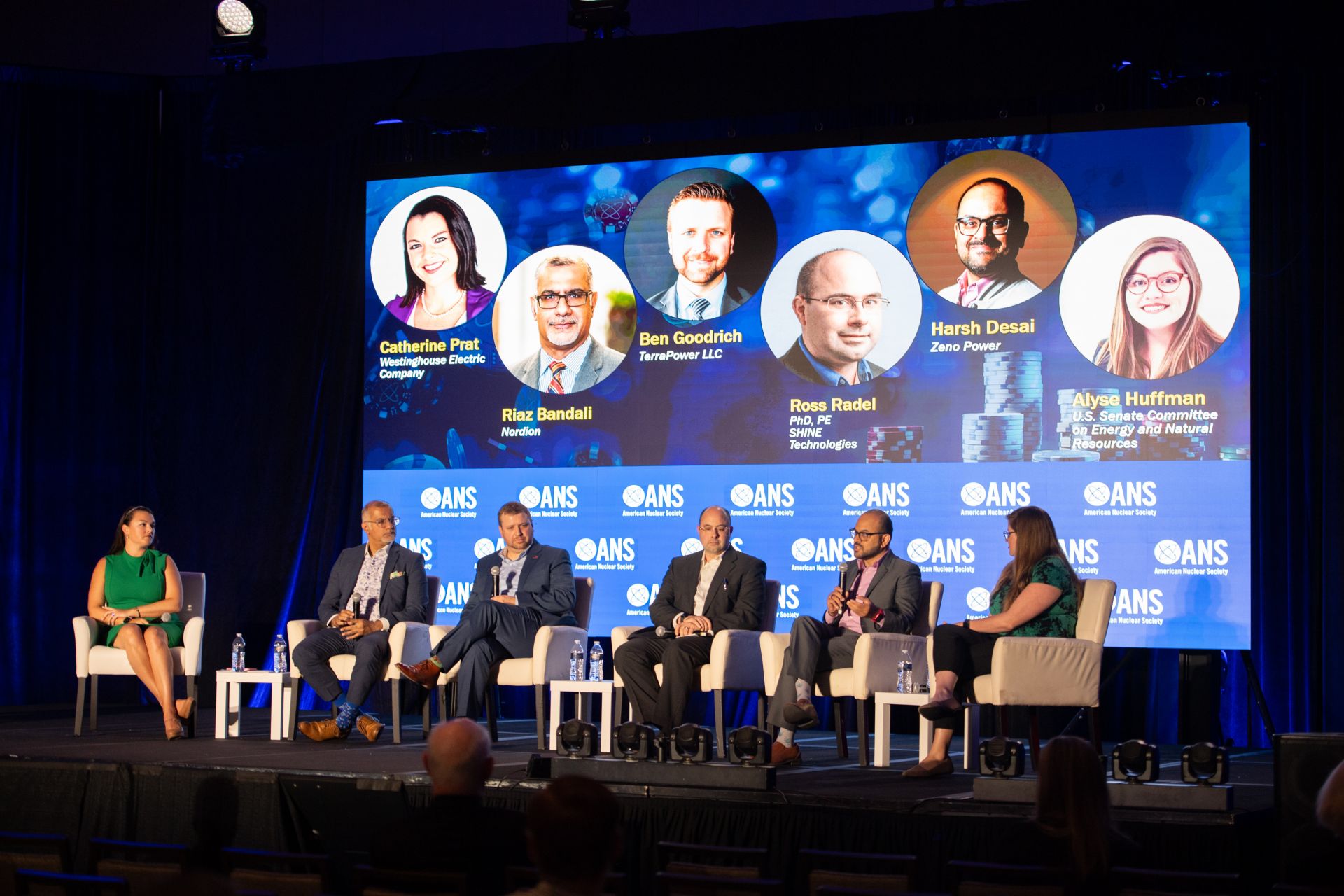Panelists for the session, from left, panel moderator Catherine Prat, Westinghouse Electric Company; Riaz Bandali, president of Nordion; Ben Goodrich, a director at TerraPower Isotopes; Ross Radel, chief technology officer at SHINE Technologies; Harsh Desai, chief commercialization officer at Zeno Power; and Alyse Huffman, a professional staff member for the Senate Committee on Energy and Natural Resources. (Photo: ANS)
“What can the atom do for you, other than produce electricity from nuclear reactors?” That was the question asked and answered during an ANS Annual Conference special plenary session on June 18, introduced by ANS President Ken Petersen and organized by the ANS Young Members Group. An expert panel discussed radioisotopes and their supply chains in the context of cancer treatment, product sterilization, power for remote applications, and used nuclear fuel recycling.
[Click image for full view.] More than 20 African countries have no radiotherapy treatment facilities. Darker blue areas indicate regions of greater population density, while radiotherapy centers are marked with red dots. (Image: IAEA)
More people in low- and middle-income countries who have head and neck cancer may be able to access lifesaving radiotherapy after research supported by the International Atomic Energy Agency has shown that fewer—but higher—doses of radiation treatment resulted in clinical outcomes similar to standard radiotherapy treatments. Reducing overall treatment times for this type of cancer through a treatment regimen called hypofractionation could help countries navigate resource constraints and shorten waitlists, enabling more patients to receive treatment while also reducing the cost and duration of care. The IAEA announced the findings in a news article published January 22.
The IAEA is helping expand the use of nuclear medicine to control cancer in developing nations. (Photo: P.Pavlicek/IAEA)
With funding from the Islamic Development Bank (IsDB), the International Atomic Energy Agency is working to help developing countries scale up their cancer care capacities in radiotherapy, the agency said. A multilateral development bank, IsDB works to improve lives by promoting social and economic development in 57 member states and Muslim communities around the world.




